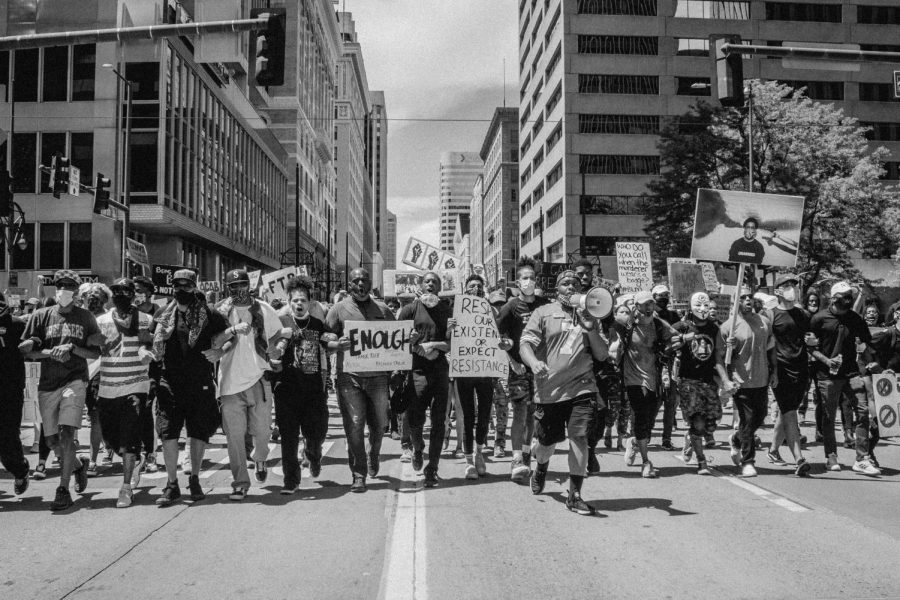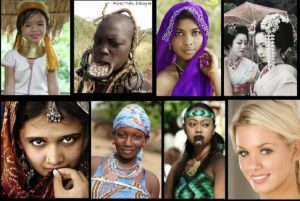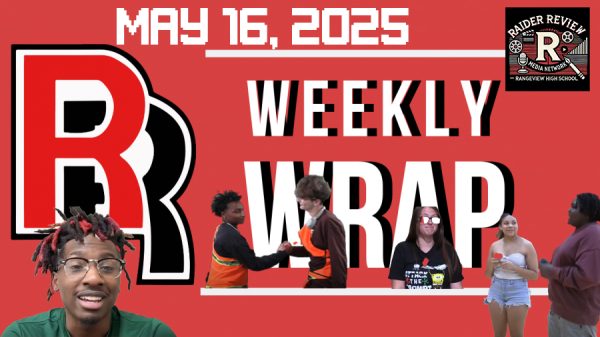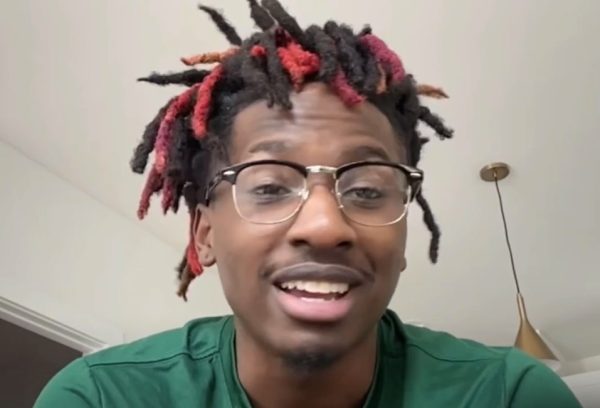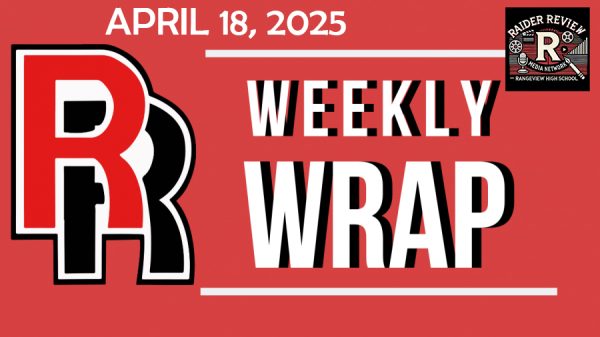Opinion: Problems and Perils of “All Lives Matter”
September 2, 2020
“All lives matter.”
It may seem like a benevolent sentiment, but the familiar retort to those who fight for the Black Lives Matter movement is problematic and perilous. “All Lives Matter” may have been intended for inclusion and equality, but it was born out of ignorance. Before delving into why, let’s take a glance at the history of both Black Lives Matter and All Lives Matter.
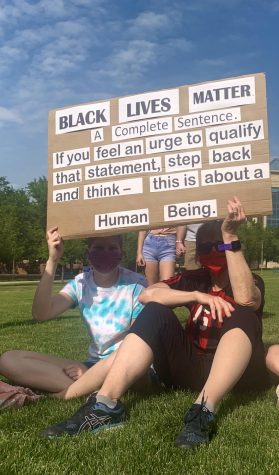
In order to avoid any confusion and misinterpretation, I must clarify and establish exactly what Black Lives Matter and All Lives Matter is. Black Lives Matter Foundation Inc. is an organization founded in 2013, following the acquital of Travyon Martin’s murder. Their mission statement is to, “eradicate white supremacy and build local power to intervene in violence inflicted on Black communities by the state and vigilantes.”
However, in the years since and especially as of late, BLM has expanded beyond an organization and into a global call for change and justice. In recent months, there has been a growing consensus about the existence of systemic racism in many facets of American life, such as policing.
A preeminent example is the death of George Floyd on May 25, 2020, which caused the movement to gain momentum in an unprecedented way. Floyd’s name, along with Breonna Taylor, Elijah McClain, Jacob Blake, and many others have poured gas into the flames as an uproar of protests, rallying, and social media campaigns sprung up all over the world.
This is not to imply in any way that racism is currently “trending” which has caused the BLM movement to gain “popularity”. Although they have existed for a long time, it appears that people have come to realize the dire urgency of these issues.
All Lives Matter is not an organization or a foundation, but a slogan. The phrase has come to be associated with criticism of BLM. Many have proposed that this phrase be used in place of “Black Lives Matter,” with the belief that all lives should be viewed equally as opposed to focusing on one single race.
But here’s why the well-intentioned phrase is problematic:
There is a sharp difference between exclusion and focus. A junior from Rangeview explains how Black Lives Matter can be misconstrued, “They think BLM is trying to put black people on a pedestal above every other race,”
However, Black Lives Matter is not a separatist movement used to ostracize other demographics. The message is not that black lives matter more or that everyone else’s matters less, but that black lives are being deprived of the rights and liberties that this country preaches.
The fact of the matter is that “everyone else” hasn’t been oppressed for centuries. “Everyone else” hasn’t faced cruel prejudices which manifested into brutality on account of their skin color. Nor do they have to struggle with discrimination on a daily basis while living in the still-racist America that is shamefully rooted in a history of systemic racism towards blacks.
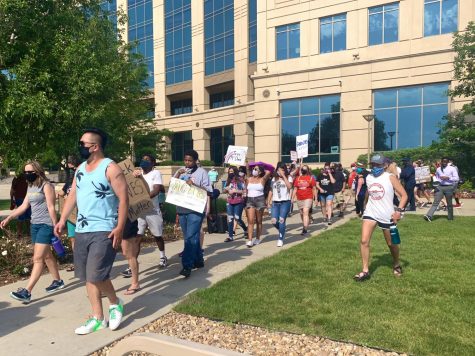
The saying “All lives matter” lacks empathy and dismisses the disparities faced EXCLUSIVELY by African Americans. It glosses over the unjust realities that black people are forced to deal with, making the phrase a form of gaslighting. Although the phrase strives for inclusion, using it can actually be hurtful. “It makes me feel less of a person,” says a student at Rangeview.
Another student describes how the phrase can be selfish, explaining that when a non-black person hears “Black Lives Matter,” their automatic response should not be, “well, what about me?”
A junior at Rangeview shares this view, “When a white person says it [All Lives Matter], it shows they are ignorant of their own privilege.”
The phrase is contradictory to itself. A junior from Rangeview explains the misconception behind the saying, “ALM has good sentiment, but it is clear that all lives are not valued the same in the current US atmosphere. Until black lives matter, the statement all lives matter is false.”
The crux of “All Lives Matter” is equality for all. In contrast, blacks are disproportionately affected by police brutality.
Upon asking a Rangeview student if they still stood behind “All Lives Matter” despite the recent burgeoning of Black Lives Matter, they responded with this, “I still stand with all lives matter, not because I think black lives don’t, but because I think the issues of police brutality are not racially motivated…” continuing by saying that making police brutality into a racial issue is “problematic.”
According to data from the Washington Post, there have been approximately 2,500 White Americans and 1,300 Black Americans killed by police in the past year.
Although there have been almost twice as many white people killed than black people, the rate at which black people are killed is alarmingly higher. African Americans make up significantly less of the United States population, about 13% (42 million people), while White Americans account for 76% (197 million people). Based on these statistics, roughly 32 black people are killed per million, compared to 13 per million white people.These numbers prove how black people are disproportionately killed by police.
“But what about the crimes they commited? What about the resistance they put up against the officers?” you may ask.
To avoid getting caught in any logical fallacies, let’s review a more detailed evaluation:
In March of 2020, the Journal of Urban Health from the New York Academy of Medicine published an analysis of legal intervention homicides (LIH) from the 2014-2015 National Violent Death Reporting System (NVDRS). Using the two year database from NVDRS, the LIH were sorted into 7 mutually exclusive classes. “Classes differ across important incident and victim characteristics such as the event that brought the victim and law enforcement together, the highest level of force used by the victim against law enforcement, and the kind of weapon, if any, used by the victim during the incident.”

After categorizing the data, the racial disparity became more evident in cases where there was a minimal threat to authorities and victims were unarmed. Although 53.6% of victims in the overall sample were white, the majority of victims in classes 5, 6, and 7
were non white. In fact, class 6 was the only subtype in which blacks were the plurality.
This is not meant to be a vituperative argument-it is a fact. Black people are killed at a disproportionate rate and they are often unarmed and posing a minimal to nonexistent threat when shot by police.
However, even if they were resisting, their deaths would still not be justifiable. In many of these cases, use of lethal force by the police violated both the law and the Law Enforcement Code of Ethics, “I will enforce the law courteously and appropriately without fear or favor, malice or ill will, never employing unnecessary force or violence…”
Black Lives Matter isn’t used to depreciate the lives of anyone else. Yes, all lives do matter, that’s indisputable. However, not all people face the abhorrent issues that African Americans do, which is why our focus needs to lay there, in fighting for and with them.
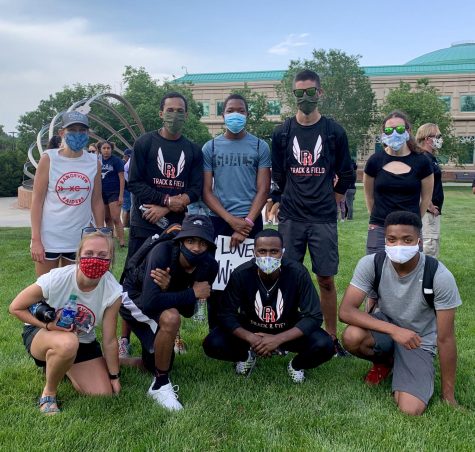
The words, “All Lives Matter” are well intentioned. Yet, they have the opposite of their intended effect, making it a more divisive language. Those who use the phrase should realize that the division which exists is because of the injustices faced by one population: African Americans.
For the statement, “All Lives Matter” to be true, we must come together with all of our resources to effectively ally ourselves with those who need it most.
Black. Lives. Matter.
